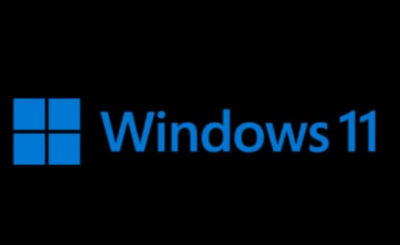In the evolving landscape of healthcare, effective communication is paramount, making it essential to have a robust framework for managing medical vocabulary. At the heart of this framework lies the terminology server, a critical component that underpins the consistent use of medical terms, codes, and classifications. As healthcare professionals increasingly rely on electronic health records (EHRs), clinical decision support systems, and other digital tools, the demand for standardized terminology has never been more pressing. Terminology server serve as centralized repositories that facilitate the storage, retrieval, and maintenance of medical vocabularies, ensuring that all stakeholders—from clinicians to administrators—speak a common language. By providing interoperability between disparate systems and fostering accurate data exchange, these servers not only enhance patient care but also support research, policy-making, and quality improvement initiatives. In this article, we will explore the vital functions of terminology servers, their role in promoting semantic consistency, and their impact on the future of healthcare informatics. Understanding the intricacies of terminology management is essential for healthcare organizations striving to optimize their information systems and improve clinical outcomes, ultimately reinforcing the backbone of medical vocabulary management.
– Importance of Terminology Servers in Healthcare
Terminology servers play a crucial role in the healthcare ecosystem by ensuring consistency and accuracy in medical communication. They serve as centralized repositories for clinical terminologies, facilitating standardized coding and classification of healthcare concepts, which is essential for interoperability between various health information systems. By providing access to a comprehensive and updated lexicon, terminology servers support healthcare professionals in making informed clinical decisions and enhance the quality of patient care. Furthermore, they streamline processes such as electronic health record (EHR) data exchange and billing, minimizing errors and reducing administrative burdens.
In the context of evolving healthcare regulations and the increasing importance of data analytics, terminology servers are indispensable for effective data management. They enable organizations to implement clinical decision support tools that rely on precise terminology, enhancing patient outcomes through improved diagnostics and treatment strategies. Additionally, terminology servers contribute to research and public health initiatives by standardizing the language used in clinical studies, allowing for more robust data analysis and fostering collaboration across diverse healthcare entities. As such, they are integral to advancing the overall efficiency of healthcare delivery systems.
– Enhancing Communication Through Standardized Medical Vocabulary
Standardized medical vocabulary significantly enhances communication among healthcare professionals by promoting a common understanding of clinical concepts. This shared language reduces the likelihood of misinterpretation, ensuring that information is conveyed accurately between providers, patients, and various healthcare systems. By utilizing a uniform set of terms, healthcare teams can collaborate more effectively, leading to improved patient outcomes and streamlined processes. The clarity afforded by standardized terminology also fosters better documentation practices, allowing for more precise data collection and analysis.
Moreover, the integration of standardized vocabulary within electronic health records facilitates seamless information exchange across diverse healthcare platforms. This interoperability is vital for coordinated care, particularly in multidisciplinary settings where various specialists interact with the same patient. By minimizing discrepancies in language and enhancing the coherence of medical records, standardized medical vocabulary contributes to a more efficient healthcare delivery system, ultimately benefiting both healthcare professionals and the patients they serve.
– Benefits of Accurate Medical Terminology Management
Accurate management of medical terminology plays a crucial role in enhancing the quality of healthcare delivery. By ensuring that healthcare professionals consistently use precise and well-defined terms, it minimizes the risk of errors related to miscommunication. This precision is essential not only for clinical decision-making but also for compliance with regulatory standards and for ensuring that billing and coding practices are appropriately followed. Clear and accurate terminology management ensures that all stakeholders—clinicians, administrators, and patients—are on the same page, ultimately fostering trust and improving the overall quality of care.
Furthermore, effective terminology management supports research and public health initiatives by providing a solid foundation for data analysis. Consistent use of medical terms enhances the reliability of health data, allowing for more effective tracking of disease trends and treatment outcomes. This uniformity in language facilitates collaboration among researchers and institutions, driving advances in medical science and public health policy. By leveraging accurate terminology, healthcare organizations can improve their performance metrics and contribute to a more efficient healthcare system overall.
In conclusion, the Terminology Server stands as a crucial component in the effective management of medical vocabulary, ensuring that healthcare professionals have access to accurate and consistent terminology. By facilitating interoperability and standardization across various systems, it enhances communication and improves patient care outcomes. As the healthcare landscape continues to evolve, the importance of a robust terminology management system cannot be overstated. Investing in a reliable Terminology Server not only streamlines workflows but also supports the ongoing need for clarity and precision in medical language, ultimately contributing to a more efficient and effective healthcare environment.










